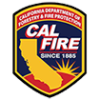Practice Areas
Civil Actions
To learn more about civil actions, please follow the links below. If you feel you have a claim and would like to discuss it with an attorney, feel free to contact our office. Please remember, this web site is for informational purposes only. No attorney-client relationship is established by using this site. This site should not be used as a substitute for legal advice from qualified counsel. The information provided on this web site is provided “as is” without warranty of any kind.
Consumer Fraud
There are many examples of consumer fraud. Although most businesses and individuals operate honestly, or at least within the law, there appears to be a large and unending supply of wrongdoers who are simply out to trick consumers for profit.
Types of Consumer Fraud
Consumer fraud occurs when an individual pays for a service, a product or property that turns out to be something significantly different (usually less) than what was advertised or promised. Consumer fraud may involve the following:
- Computers and the Internet: Shopping and e-payments; privacy and security; spam e-mail; web scams.
- Identity Theft: Identity theft is a huge, relatively new type of consumer fraud.
- Credit and Loans: Credit reports and scoring; credit cards; unlawfully high interest rates or other charges for consumer credit or consumer loans; unfair or harassing debt collection practices.
- Real Estate: Mortgage fraud; real estate and landlord/tenant fraud.
- Automobiles: Financing, leasing, buying or renting a car; maintenance; “lemon” automobiles.
- Telemarketing and Telephone Services: Phone services; prizes and sweepstakes; telemarketing scams; unauthorized charges; fake charities.
- Diet, Health, and Fitness: Drugs and dietary supplements; devices, procedures and treatments; weight loss products.
- Education — Scholarships; job placement.
- Investment and Business Opportunities: Investment schemes; work-at-home schemes; franchise or business opportunities.
- Shopping for Products and Services: Home improvement; buying plans; funerals; jewelry and art; legal services; travel services; purposely confusing consumer contracts; “bait and switch;” “fly by night” businesses.
- Quackery and Other Unscrupulous Conduct: In the medical, pharmaceutical, bug extermination, accounting, building and construction fields among others.
- Insurance: Unlawful insurance premium surcharges; bad faith denial of insurance coverage.
Consumer Fraud Laws
Although state and federal consumer fraud laws have been implemented in the effort to protect consumers from all this deception and fraud, the enforcement of these laws is not eliminating the problem. In addition, fraudsters are constantly coming up with new ways to deceive innocent victims.
Seek Help and a Legal Remedy
To compound the problem many people fail to seek help or a remedy after they’ve been the victims of consumer fraud — whether because of embarrassment over having been tricked, because they don’t even realize they’ve been defrauded or because it’s been quite a while since the fraud took place and the victim thinks there’s nothing that can be done.
However, there are several ways that a victim of consumer fraud can seek relief, including local and national consumer groups and their state Attorney General’s office. Most states have consumer protection laws that allow a victim of fraud to obtain restitution, sometimes for triple the amount of money he or she was tricked out of.
A civil legal action against the perpetrators of the consumer fraud can be initiated by a private law firm. We have extensive experience with consumer fraud cases, and we can help:
- identify the people responsible for the fraud.
- gather documentary evidence of the fraud.
- identify any co-conspirators.
- gather evidence of a continuing course or plan of fraudulent conduct.
- find other instances of fraud committed by the perpetrators and other victims.
Consumer Fraud and Class Actions
Most perpetrators of fraud have deceived many people — not just one or two individuals. Consequently, a class action may be the appropriate tool for getting a legal remedy for your damages. In a class action, a group or “class” of people who have been defrauded by the same company or individual band together to take legal action.
Our attorneys are experienced in filing and pursuing class actions for consumer fraud and we will be able to tell you whether your particular circumstances are appropriate for a class action.
Contact us today if you feel that you’ve been the victim of consumer fraud. We can arrange a free consultation for you to explore the details of your case, answer your questions and discuss your legal rights.
Premises Liability
Premises liability is the area of law that holds property owners legally responsible for any injuries sustained on their grounds. Slip and fall accidents represent a significant portion of all premises liability claims. However, the scope of premises liability law is much broader, encompassing injuries sustained as a result of toxic substances on the property, property defects, and more.
If you have been injured on someone else’s property, you may be eligible to file a premises liability lawsuit to recover your damages. To ensure that your legal rights are protected, it is important to contact a qualified premises liability lawyer as soon as possible. Please contact us today for a complimentary consultation with an experienced attorney who can evaluate your case and determine your eligibility to file a claim.
Who’s at Fault?
Determining who is at fault in a slip and fall accident or other premises liability case is never a clear-cut process. Liability is based on the status of the person injured–that is, whether or not the person was lawfully on the property. The three primary types of visitors to a property are:
- Invitee: An invitee is a person who was either explicitly or implicitly invited to enter and/or remain on the premises for business or commercial purposes. For example, customers to a store are considered invitees.
- Licensee/Social Guest: A licensee/social guest is someone who has received explicit or implicit permission to enter the property for purposes other than business or commerce. A visitor to another person’s home for social purposes may be considered a licensee/social guest.
- Trespasser: A person is considered a trespasser when he/she unlawfully enters another person’s property without any consent whatsoever–implied or explicit–and for his/her own purposes.
Premises liability laws outline certain responsibilities and standards of care that property owners must meet to ensure the safety of their visitors. However, these laws are largely based on whether or not the visitor had a legal right to be on the property. Also, visitor status is not the only factor considered when determining liability. Because liability laws are so complex in premises liability cases, individuals who have been injured on another person’s property should always consult with an attorney.
How We Can Help?
Our attorneys know the law and have used their extensive experience to help clients obtain the justice and money they deserve for their suffering and losses. If you’ve suffered injury on someone else’s property, our attorneys can help you understand your legal rights and options. Please contact us today for a no-cost consultation with a skilled and trusted premises liability lawyer who can ensure your rights are protected.
Product Liability
Dangerous or defective products –from malfunctioning auto parts to faulty medical devices– result in nearly three million injuries and 22,000 fatalities every year in the United States, according to Consumer Product Safety Commission (CPSC) statistics. Essentially, any type of manufactured product on the market can be defective or dangerous including foods, drugs, cosmetics, toys and more. In the event that a product causes an individual to suffer injury or death, the victim has the legal right to file a product liability lawsuit against the maker to recover their damages.
If you have suffered harm because of a defective product, we urge you to seek legal help immediately. Our attorneys have a wealth of experience handling product liability cases and can help you file a claim and get you the compensation you rightfully deserve. Please contact us today for a complimentary consultation.
What Constitutes a Defective Product?
There are many reasons why defective or dangerous products find their way on the market. The three major categories that would make a product defective and result in a product liability claim include:
- Design Defects: If there are flaws in a product’s conceptual design– before it is ever created or manufactured– there are grounds for a product liability lawsuit. In many cases, product makers catch these defects after they have been on the market and are required to launch a recall. Unfortunately, most recalls occur too late and people have already suffered.
- Manufacturing Defects: These defects occur as a result of errors made during the actual manufacturing or production phase of a product and may not affect every single item. For example, if a small part falls off a toy and a child swallows it, resulting in serious injury, a product liability suit can be filed against the toy maker because of the manufacturing defect.
- Marketing Defects: This type of product liability occurs when a manufacturer fails to clearly warn consumers of the possible risks and dangers of their product, e.g. harmful drugs such as Vioxx and Ortho Evra. Marketing misrepresentations that may also result in a product liability claim can include improper, hard-to-read, or confusing labels and instructions.
Do You Have a Product Liability Claim?
If you have suffered injury or a family member has suffered death as a result of a defective product, you may be eligible to seek compensation for your losses through a product liability lawsuit. Damages that can be recovered include: pain and suffering, medical bills, lost earnings and in certain cases, punitive damages. Let our highly qualified and knowledgeable personal injury lawyers evaluate your case FREE of charge, explain your rights and options and determine the best course of action for you. Please contact us today.








